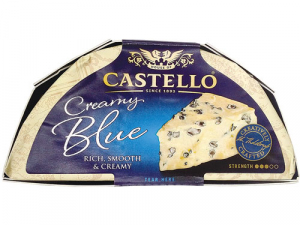A scoping paper for the negotiations with the EU was released this month and referred to ‘sensitivities’ on agricultural products.
“If you talk to someone in the EU on current tariff quota products they will only be talking about increased tariff quota access,” Harvey explained to Dairy News.
“But if you look at the scoping document there are a number of things we can use -- extended trade phase out, tariff rate quotas -- and if you make them big enough you have free trade.
“We effectively have free trade with sheep meat now because the quotas are way bigger than we can sell.
“And it says for any other options which might be agreed between the parties – for example you could have a safeguard mechanism which is another way of dealing with sensitive products – you might have a trigger level for a safeguard which expands over time until it is no longer necessary.
“If I had to do that I would want an expanding one, not a fixed one, so there are a number of ways you can do it.
“The safeguard mechanism in China basically acts like a tariff rate quota until it disappears. It basically says ‘you can have this much access and then you have to pay the tariff’.”
Harvey says there is a range of options. “Our view is we will be ambitious, we would want the best access possible.
“We will be confronting interests in the EU which want limited access for those products. Some of those are hard to fathom because the EU dairy industry operates pretty much at world prices now and they are expanding their global markets and competing with us everywhere else.
“They are expanding their exports into our market so what’s the problem with us exporting a little to them? But unfortunately they are used to looking at it as ‘this is our market and our market only and anything that comes in is bad for us’.
“Our message to them is ‘look at the global picture; we are really about NZ and EU on the global stage; we are not talking about how much of your precious market we will take away; we are not going to be flooding it.
“We’ve got a job to explain to them what NZ’s actual size is, our role in the world and world market relative to the EU. Some of them don’t even know we are eight times smaller than they are in dairy production.
“Part of the argument is that there is increasing commercial collaboration; it is jointly producing higher value products for the local market and third markets. Some of those things are already going on. There is this great example of Fonterra taking whey from a major cheese plant in the Netherlands, making whey powder, and exporting that to China where it is mixed with product from Australia and New Zealand for China’s infant formula market.
“That sort of stuff is only going to increase, but it is only going to get better with more possibilities if we are not constrained by limited access.
“So we would like to incorporate in that product, imported product from New Zealand but we can’t because it is constrained by a tariff rate quota or the tariff is too high if it is a tariff-only product.
“Surely it is going to increase the kind of production possibilities if we can have those options.
“But some European agricultural interests just can’t look beyond the notion that anything coming into the market from the outside is bad for them.”















